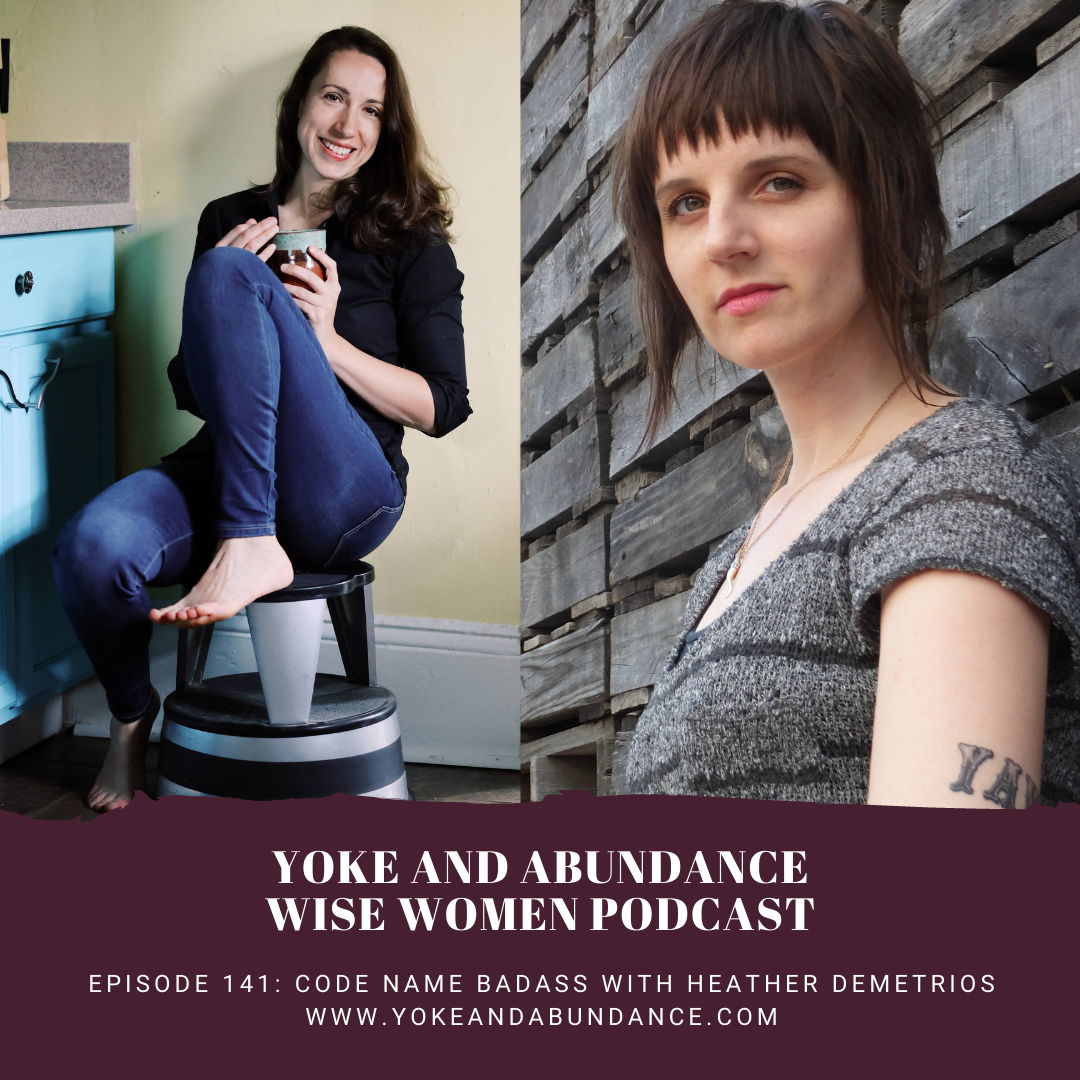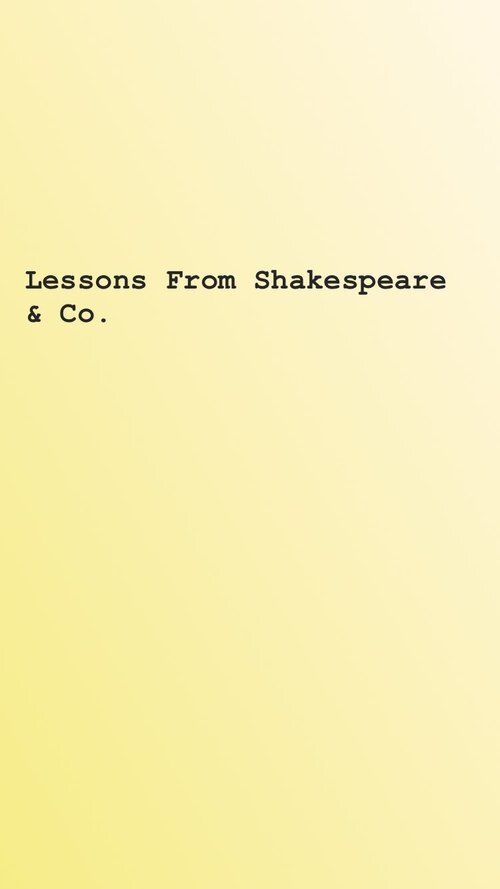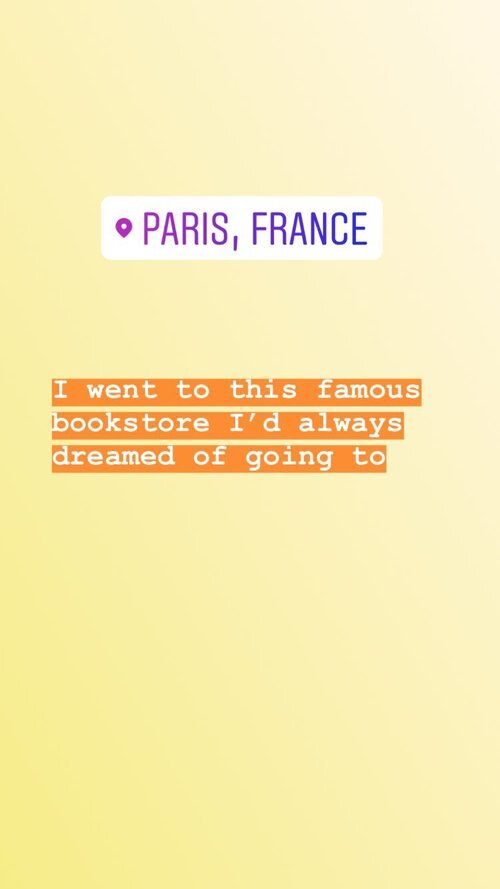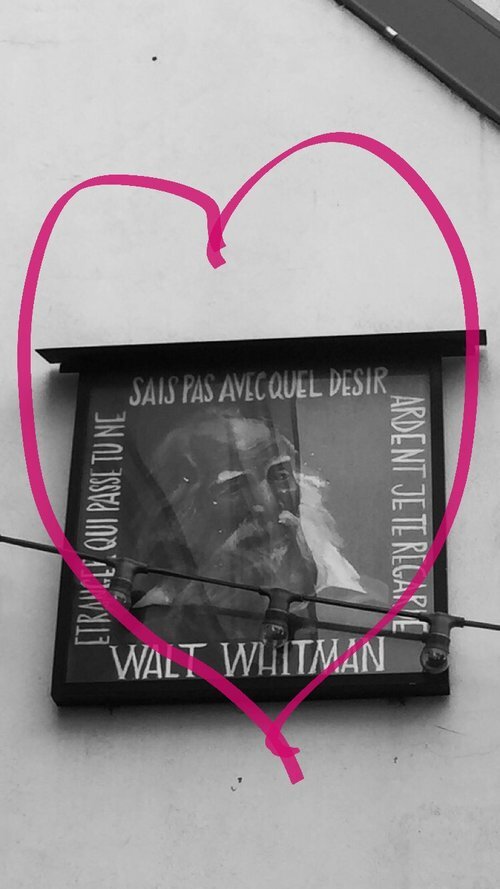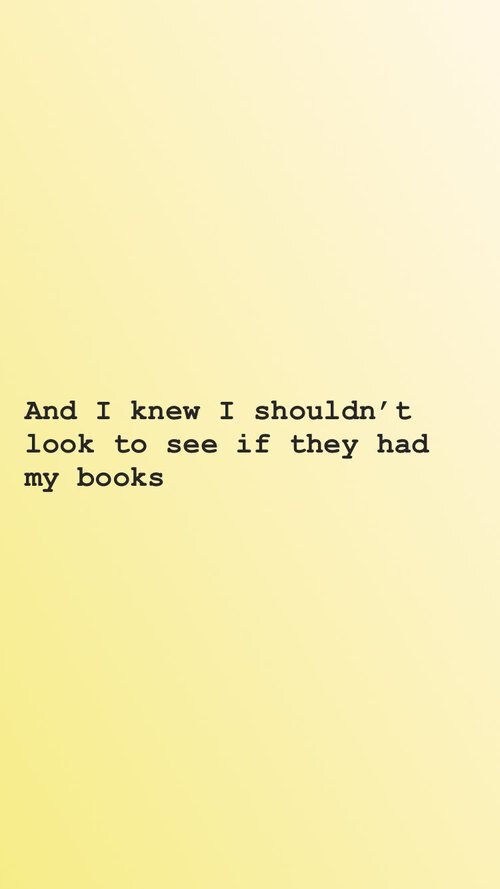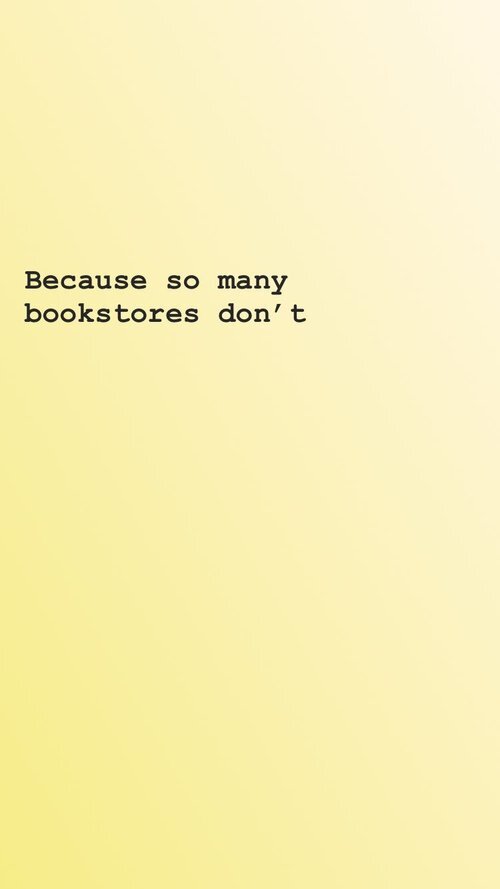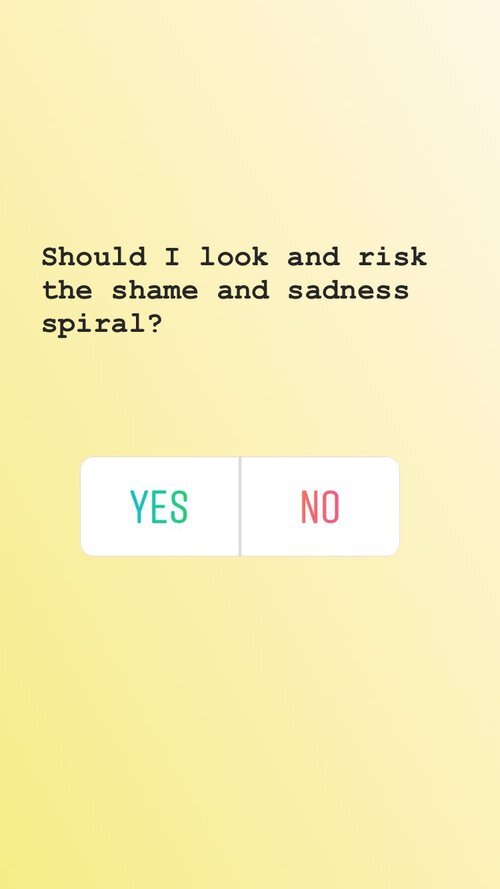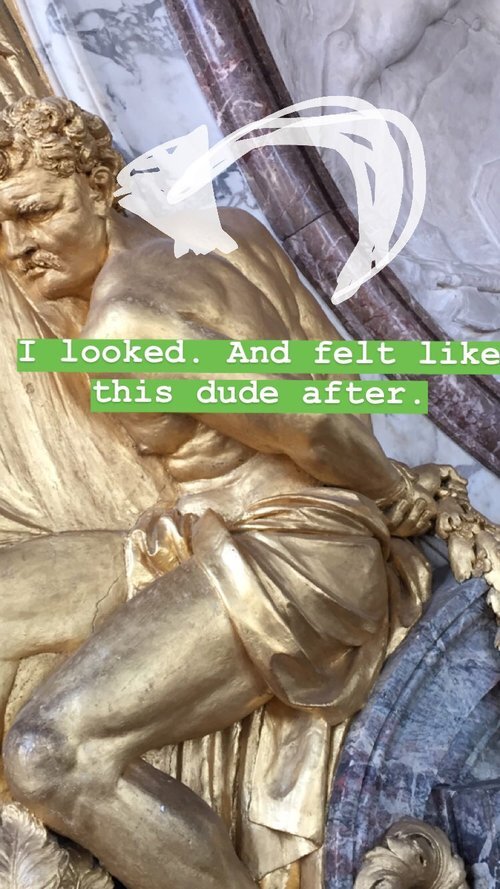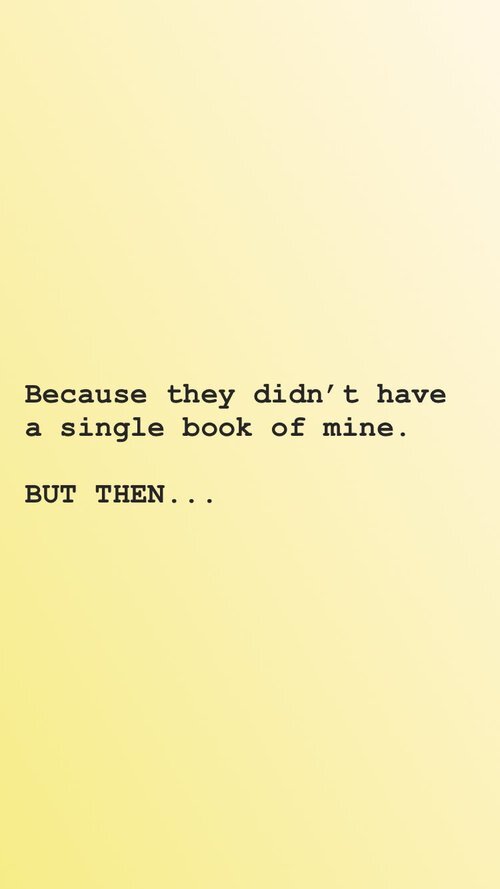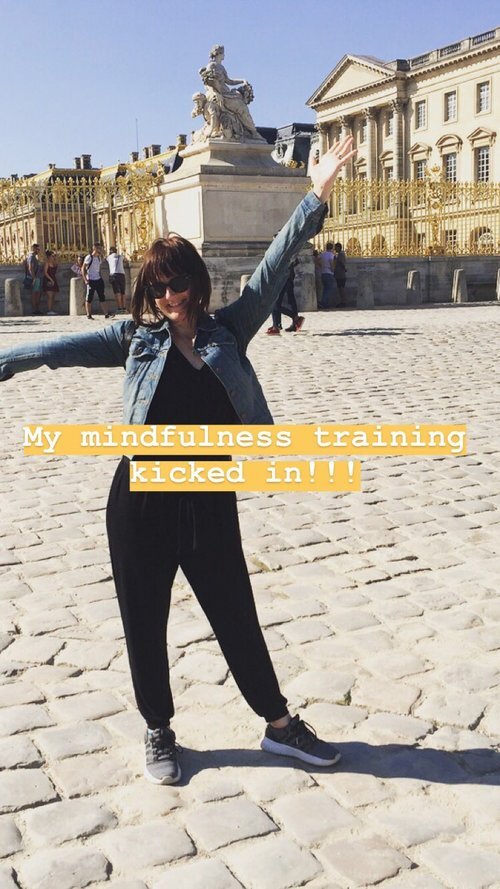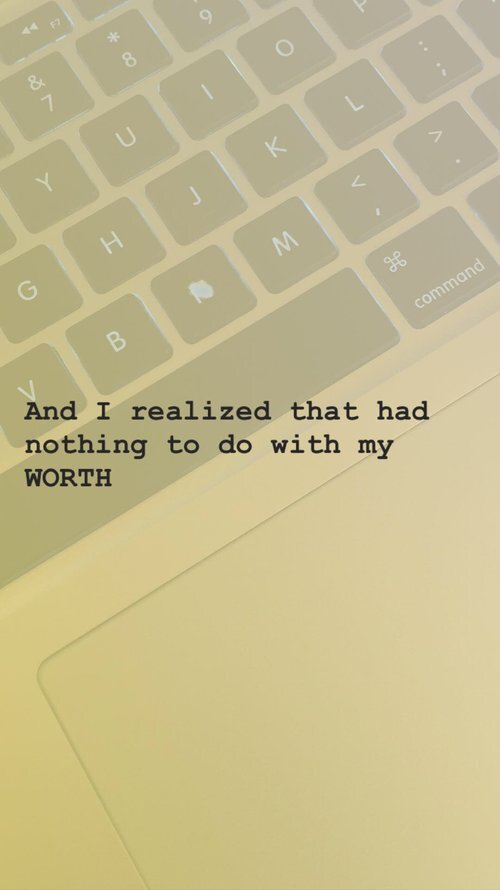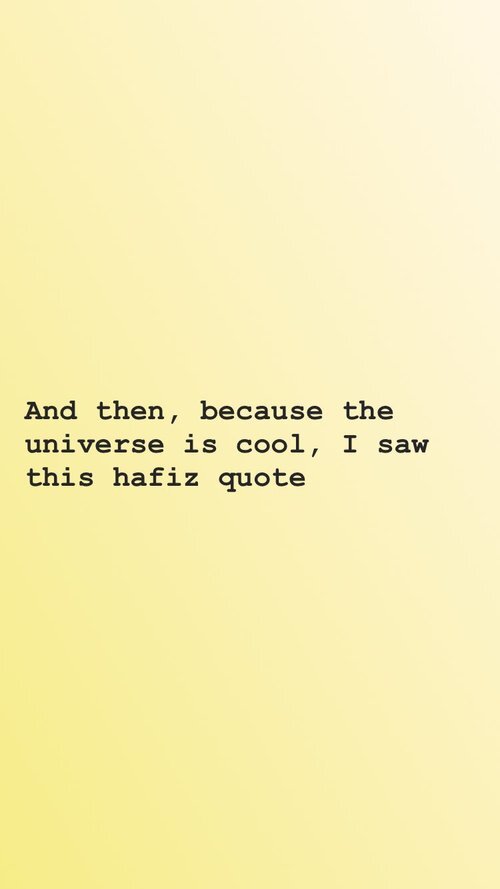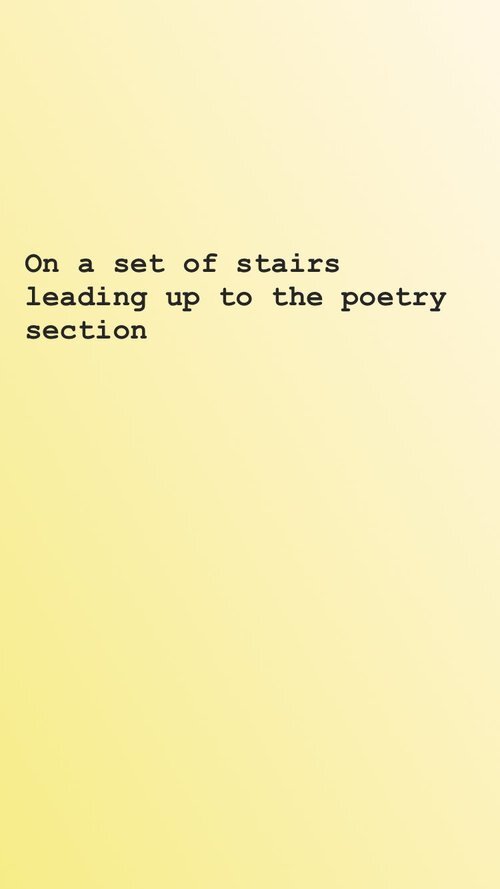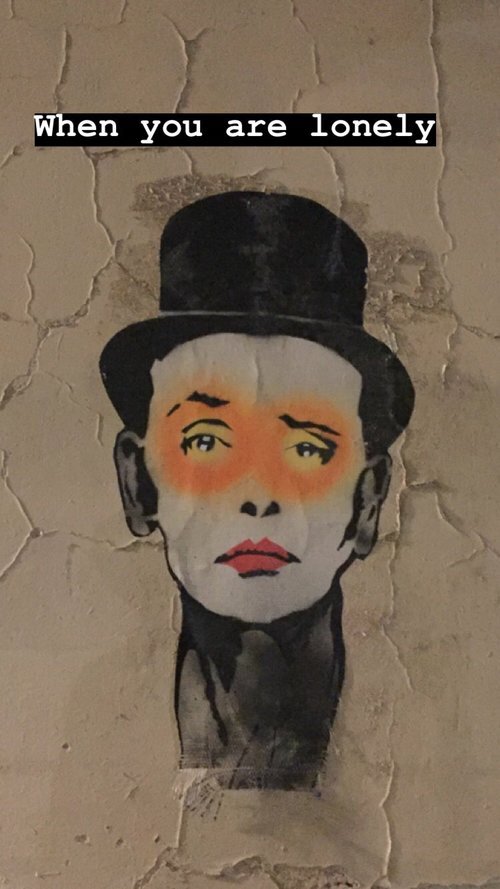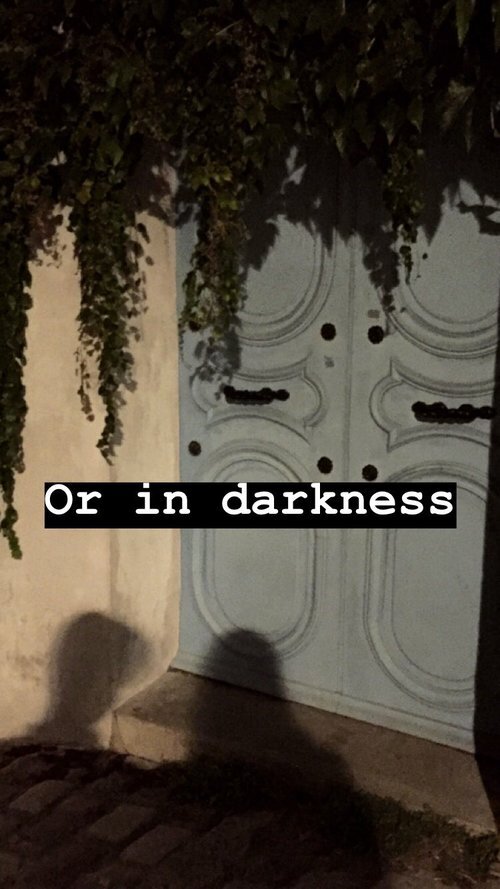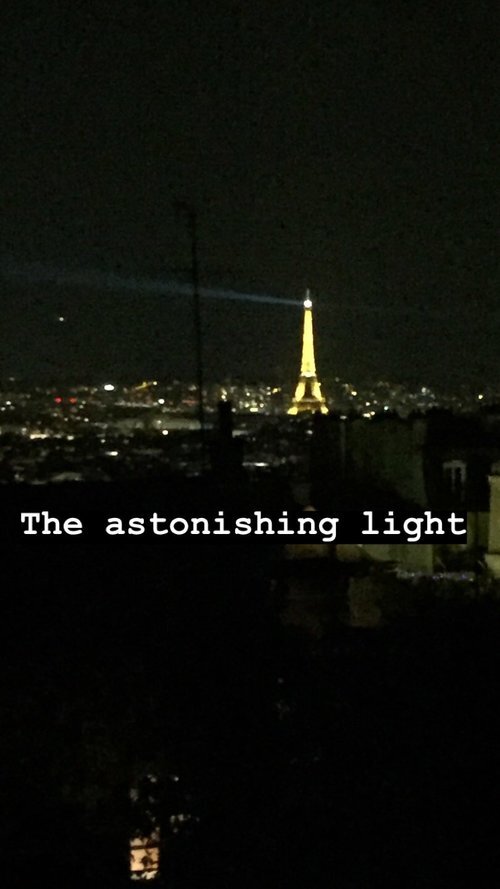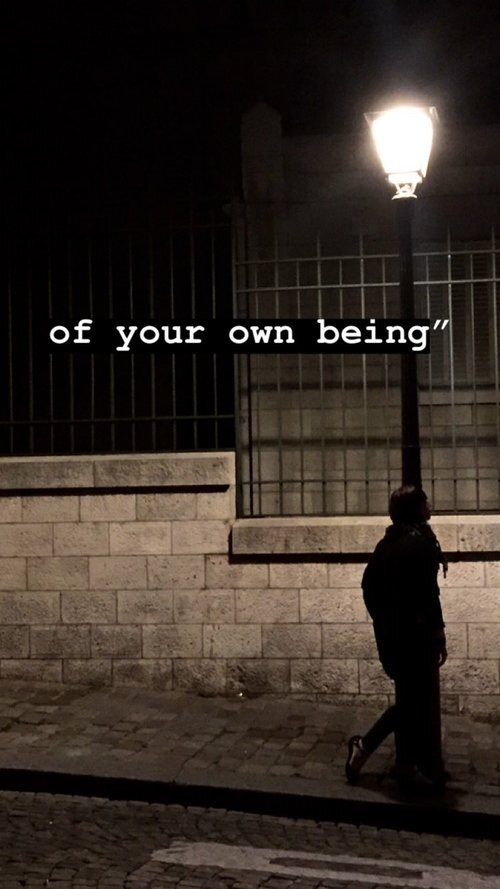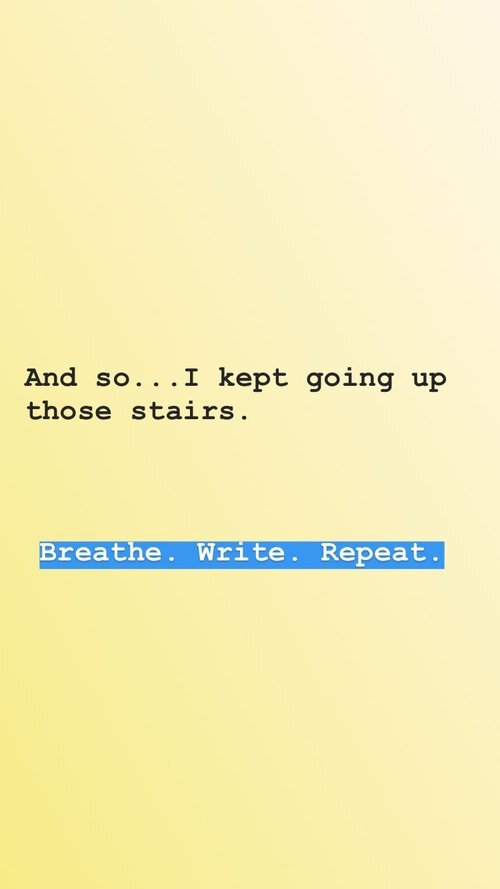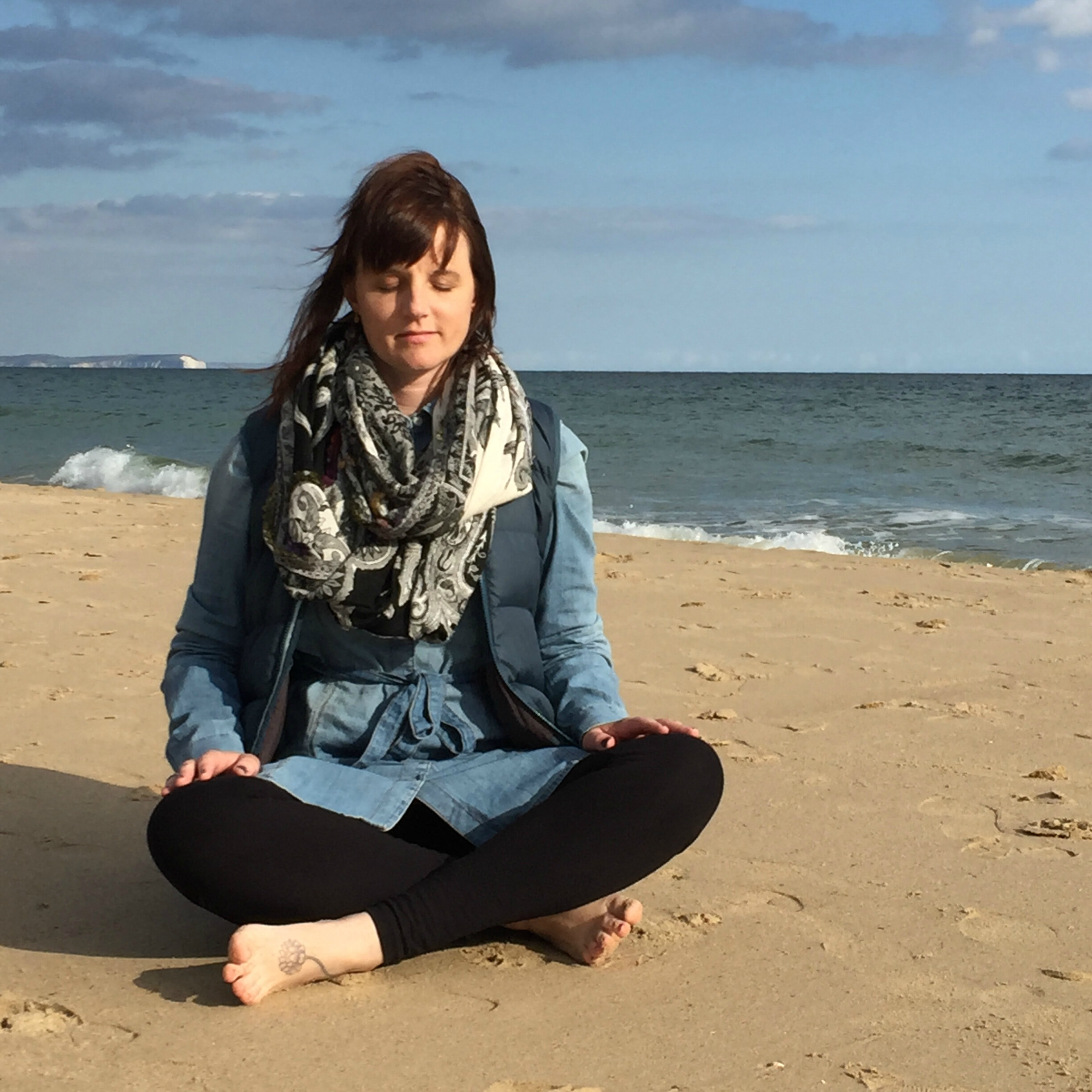A Daily Empowerment Practice To Rewire Your Thoughts and Banish Limiting Beliefs
*** Please note: for a download of the Be-Do-Feel-Have PDF, be sure to sign up for my newsletter!
The process I’m about to outline was inspired by an interview mindset coach Jim Fortin gave on the Mind Your Business podcast, where he spoke about reprogramming your mind for better performance. Now, just writing that sentence made me feel a bit gross – raise your hand if you’ve had it with the mass buy-in of boss girl culture, hustle, and high-octane performance. I know I have (even if it continues to intrigue me). So before I get into the goods, I want to dig into how we might come at “growth mindset” work from a place of integrity, and give you a quick hint about what’s to come.
Growth Mindset For Writers
In a nutshell, Fortin offers up a template of four statements that you write every single day in order to rewire your brain and create new grooves for thoughts that will help you reach your goals so that you don’t keep walking in the trenches of the thoughts and limiting beliefs that are running you and ultimately keeping you from your goals as a writer.
I work with the statements myself and find them to be in alignment with other thought work I’ve done along the lines of Martha Beck or James Clear. I like the succinct nature of the statements, writing them each day, and it jives with what I believe to be true in my own direct, lived experience with mindfulness and meditation. I also think the science checks out.
But.
Mindful Growth Mindset – Is it Possible?
As a mindfulness practitioner and teacher, there is a lot about growth mindset and self-development (“self-help” for those of you who are tired of adapting to new lingo) that does not play well with a spiritual practice of being present and learning to sit with discomfort and what is in order to become more awake in this lifetime. It certainly doesn’t pair well with teachings on impermanence and a path to freedom that necessitates releasing yourself from attachment and clinging to anything and anyone. Finally, a lot of growth mindset is embedded in the ego…not so helpful for anyone working with the concept of one-ness / emptiness / no self that is the most confusing part of Buddhist psychology for writers, and one I’m only just beginning to wrap my head around in a workable way.
One of my biggest issues with many personal growth practices is that they don’t start from a ground zero that assumes you are whole, you are enough right now just as you are, and that you probably already have and are what you’ve been looking for. They assume you lack something and that you need a practice to get the thing. I think you’re whole, just as you are, and we just need to shine a light on some of the places within you that have yet to be fully explored.
But my very biggest issue with this work is how it’s often only available to those who have a surplus of resources: time, money, personal bandwidth.
If you’re reading this, you likely live in the developed world and have access to basic needs. Otherwise, work like this would be on the bottom of your list of priorities. The elephant in this particular room also needs to be addressed: As a middle-class, educated American white woman, any talk about growth mindset also feels…yucky. I’m able to access these concepts from an immense place of safety and surety and power, and so I want to put on the table from the outset that if you’re a BIPOC writer or from a country that lacks the riches of the US or are personally struggling financially, I recognize the discomfort that comes with this discussion for both of us, and the pain it may cause you. Please know that I am carrying this as best I can in the work we engage in together. I see you. I see me. And I’m working from a place of clear eyes and a full heart.
All of this to say:
This healthy aversion to podcasts like the one that inspired this exploration we’re on might have kept me from listening to the Fortin interview at all, had it not been for my dear friend, the author Camille DeAngelis, who shared how engaging in this work for a solid year was transforming her mindset and her life, with wonderful real-world results for her writing and creativity and livelihood. She encouraged me to check it out for myself. I decided to interrogate the idea of neural persuasion and growth mindset in a deeper way than ever before and found myself falling down a rabbit hole of exploring my discomfort with all things law of attraction, The Secret, manifestation culture, and magical thinking. (My mind always goes to, So what, people with no water in Africa just don’t “want” it enough to manifest a well in the middle of their village?)
It took me a while, but I found a way to line this work up with my integrity.
By the end of my deep dive (which, by the way, is only really scratching the surface of the ocean of wisdom out there), I felt that much of what Fortin said in this podcast checks out and is highly workable, but only if I tweaked his practice to reflect a mindful, feminist value system, with a heart-centered and inclusive approach.
Subconscious Transformation & Neuro Persuasion
Fortin is an expert in subconscious transformation and “neuro persuasion” –basically known as “subconscious reprogramming” of the neural pathways in your brain. In mindfulness, we might talk about these pathways as the neural thought grooves we create, the storylines that run us, and what the Zen Buddhist master Thich Nhat Hanh calls “habit energy.” These are the trenches in our mind where our limiting beliefs and misbeliefs have their guns trained on our self-confidence, engaging in daily attacks to weaken our personal power.
James Clear digs into this territory quite a bit in his wonderful book Atomic Habits, as do other experts on growth mindset. It’s not so much that the concepts Fortin presents are entirely new; it’s the simple power of the process he outlines in working with them that I have personally found to be so effective. When I’m working with a writer who is overcome by limiting beliefs, I offer this work up; it invites a great deal of clarity and aids in cultivating a healthy creator’s mindset. This, in turn, provides a firm mental foundation from which the writer can build a sustainable and flourishing writing practice. Like meditation and mindfulness, neural persuasion is a tool that can help you navigate the ups and downs of the writer’s life with a bit more elegance and a lot more joy.
For the purposes of our exploration, I’m offering a few of the delicious tidbits from this otherwise somewhat problematic podcast episode (two rich white guys talking about manifesting wealth without acknowledging any of their privilege or the real obstacles people face = yuck). But I never throw the baby out with the bathwater, so.
Below is the link to the interview, if you want to listen for yourself – don’t say I didn’t warn you! And for those of you who are trying to create more pockets of silence in your life for optimum flow and creativity and general mental hygiene….perhaps don’t click. (Ahem. You know who you are!)
https://www.mindyourbusinesspodcast.com/blog/114
Brain Science
As I mentioned above, the idea of this work might feel like another manifestation / Law of Attraction thing, but it’s not – or, at least, not in the way I do it. (While I believe our energy does attract some of what comes into our lives, I find a reliance on manifestation problematic and just plain bullshit on many levels).
This work that Fortin presents in regards to neuro persuasion is based on the premise James Clear shares in Atomic Habits, as well: in order to change the concept you currently hold of your identity, you have to change your thoughts. For example, working from an identity of I am a procrastinator to I am a writer who writes every day requires a serious mental shift in self perception. Easier said than done.
We talk about this all the time when I get into mindfulness for writers. This is ye olde brain science: neural plasticity, neural pathways, prefrontal cortex, etc. Meditation is one way to carve new neural pathways in your brain – the thought work we do, like changing the genre of your thoughts, is getting rid of old pathways (stories that aren’t true) and creating newer, healthier ones.
This is a great article on Vox about neuroscience and the ways our brains can be tricked or trick us:
https://www.vox.com/science-and-health/20978285/optical-illusion-science-humility-reality-polarization
Fortin shared the oft-cited concept that “You are where your attention is.” This is territory that has been covered very well in both sports psychology and performance coaching. I myself have written about this in my “Sports Psychology For Writers” post. Nothing new to see here, but it is true. If you have the thought, “I’m a procrastinator,” then your focus is on shame and blame and nothing changes. But if your thought is, “I’m someone who is resilient” then suddenly you are much more capable of busting through your procrastination. You are where your attention is – it can be on procrastination or resilience. Choose your own adventure.
Fortin suggests that most mindset transformation techniques don’t work because they focus on the left brain – the analytical, logic brain – which is at the conscious level and therefore much harder to change. But if you go into the right brain – the subconscious, intuitive, flow space we love and cultivate so much as writers – then you get into the place where you can actually reprogram your brain.
Research shows – and this is true, I’ve heard it time and again – that our brain does not know the difference between real or imaginary images and events and stories. If it sees violence on TV, it logs it the same as if it had happened IRL. This is terrible for trauma, but good for affirmations and brain reprogramming at the subconscious level. Your brain does not know the difference and so you can reprogram it to believe you are who you want to be. Within reason, of course. Too much so-called “reprogramming” and you end up in a room with white walls and a locked door.
And, then, there’s my big pet peeve with this work: affirmations that are basically asking you to lie to yourself all the live-long day. (“I am a millionaire. I am a NYT Bestselling author.” “[insert your wild dream here]”) Maybe those things will be true for you someday and you know on a deep gut level you can make it happen, but if hey aren’t true right now and you keep repeating those phrases over and over, you’ll likely just feel like crap because you know they’re not true and so not only are you lying to yourself (how unkind!), you can’t even believe the lies on any level, which is why these types of affirmations rarely work and only result in self-delusion, frustration, and depression.
So, a personal side note before engaging in any kind of work like this:
I’m putting on my feminist and mindfulness hats here, since Fortin left those at home for this interview…
You are already enough. You are already whole.
So my come from with this work is that we are returning to who we are, our highest self. Not becoming someone else. This work is never meant to take you away from home base, or lessen your self worth, or create a sense of comparisons or ideals.
Just like with my You Have A Process work that I do one-on-one with my writers, our goal with neural persuasion is to access your true desires, your process, what works for you, makes you happy, makes you aligned with your integrity.
Affirmations are tricky: it’s all about intention, and that idea of returning to self, or accessing highest self – not, as is so often the case, about telling yourself yet another untrue story about yourself or your life, only to be totally devastated when you can’t “manifest” properly.
This work is all about accessing who you already are on your very best day.
For example, if I say, “I already have a bestselling novel” that is 100% bullshit. I do not. That kind of affirmation is not what I’m about. But if I were to say, “I have already written a bestselling book” (if you have a manuscript) or “I have a bestseller in me” (if you haven’t completed the book yet) – now we’re getting somewhere. Can you taste the difference with these statements, and see why one is bullshit and one is waking up to your potential?
The truth is that if I do the shadow work, the inner work, the meditation, the mindfulness: then I will get to a place where I truly can see that I already have written a bestselling book (or that I have one in me) – it’s just that the sales part is not up to me. But I wrote it. I did my job. And so I go out into the world like a boss lady who has written a bestselling novel, because I have.
I know it’s worthy of that (this is not dissimilar from the Martha Beck “Defrosting Your Thoughts” exercise I wrote about). The fun part is that I’ll probably get much closer to that cool seat on the list because, energetically, I’m putting out much less desperate vibes. And people are drawn to confidence. And, I’ll put good effort into promoting the book and befriend my scarcity instead of believing that there aren’t enough seats at the table. All of this means more people see the book, word of mouth increases, I feel good because I know I’ve done what I can and am working from a place of personal power, where my worth isn’t tied up in my book or it’s sales. Personal power is attractive. We don’t know what it will bring into our lives, but it will bring something useful or delightful or interesting. You can bet on it.
Bonus: Let’s say the book doesn’t ever hit the list. How do you think I’ll feel? I know I wrote a book worthy of being a bestseller. I feel and have been projecting confidence, and that has likely brought some incredible experiences and opportunities and people my way. Let’s just say I’d feel better than if I hadn’t done this work and assumed I was invisible and my book would tank. Actual bestseller or no, with this mindset, you always come out ahead.
Hope is the thing with feathers. So fly, baby, fly.
A Caveat: Manifestation? Um…No. And Yes.
I have to put on the table one of my biggest reservations about anything involving affirmations or manifestation or Law of Attraction: It often feels reserved for those most privileged and it suggests that people who are legit suffering are only doing so because of their mindset. That being said….Fortin has a point in this interview. Even if you’re really down on your luck, your mindset is the best chance you have of changing the narrative, whether you’re in a refugee camp or Hollywood. Still, it’s much harder in a refugee camp, and there are far fewer ways to change your situation, not to mention trauma.
But you are not in a refugee camp, probably. You are likely from a background where you have enough to care for yourself that you can even read this (and high-five for your grit if you made time to read this even when you are experiencing a severe lack of resources). Most of you are lucky to have the bandwidth to do this work and because we have the opportunity, we should take it because it will ultimately help us do right by the miracle, to, as Alice Walker says, pay our rent for being on earth through our activism (and writing good books is always a form of activism in the fight against darkness and despair). If you were very woo, you might even say that if enough of us engage in doing right by the miracle with deep intentionality, then we could actually raise the vibration of the planet. (I’m on the fence about that concept, but I do see the ripple effect of good vibes in my immediate vicinity when I do the hard inner work of not being an asshole all the time, so, yeah, I’m open to it).
Reprogramming Your Mind
This work is fundamentally about reprogramming your subconscious mind. Fortin talks about how most people work from where they currently are to where they want to be – but that’s a backwards strategy.
You have to work from a place of arrival, of having already stepped into your highest potential and have the thing you want – you’re already her, remember? You’re already there. You’re at the fire. It’s just that all those limiting beliefs are the smoke that keep you from seeing your true self. This work is about clearing away that smoke.
Don’t forget: the mind can’t tell the difference between real and fake. So the more you do the work of truly believing something that is true to be true (even when your mind wants to tell you otherwise), the more the subconscious mind gets on board and believes it too. This affects your behavior and ultimately gets you much closer to what you want.
To be clear: You are not lying to yourself. You’re not tricking your brain. You are not saying things you don’t believe.
That being said, some of this work could be aspirational in nature – but more on that later.
James Clear, sports psychologists, and other performance experts all say the same thing: In order change a habit, you have to first start with your identity. If you want to be the kind of person who wakes up early, then you have to believe you are a person who wakes up early. And then…wake up early.
But the believing part is the hard part, and that’s where this important work of subconscious neural rewiring comes in. You’re basically hypnotizing yourself. You’re telling yourself a new story about yourself, but it’s a true one. Your conscious mind just doesn’t know it yet, so it keeps acting out in the same old behavioral patterns, running over those same old neural pathways of habits that are keeping you from what you want.
This actually ties in super well with my love for Danielle LaPorte’s Desire Mapping and the concept of Core Desired Feelings. Because you’re taking your focus off the goal and focusing on your feelings, your self.
LaPorte’s question is: What do you need to do to feel the way you want to feel?
Fortin wrote the prequel question to that: Who do you want to be, and then what do you need to do, to feel the way you want to feel?
We don’t want a thing, we want a feeling.
Every NYT Bestseller I know is miserable. So why would I want to be on the list? I don’t want to be miserable! What I want is the feeling that I imagine the list would give me: the security, the validation of a seat at the table for a little bit longer, the money, the hope that more of my words will be read by more people, and that I can maybe change the world for the better, just a little bit.
But there are more ways than the list to accomplish those things, no?
I’m not interested in being Icarus. I want to be Circe, who felt invisible, lived on her island, made friends with lions, and found her inner magic. And turned bad men into pigs.
So Fortin (and LaPorte) are saying: People are doing mindset reprogramming backwards, which is why most self-development mindset Jedi stuff doesn’t work. They focus on what they want, but you won’t have what you want without changing the way you show up in the world.
Practical Magic: The Be – Do – Feel - Have Formula
So we start with a question, this from Fortin:
· Who would I be, what would I do, how would I feel if I already had_________________?
That blank is for you to fill in: the thing you really want.
Note: we’re not talking small potatoes here. We’re talking the big thing. It might be quitting your day job and being a full-time writer with a bestselling vampire series.
It could be a certain amount of money that feels Bezos-level safe to you. You couldn’t spend it all if you tried.
It could be a partnership, business, government position…whatever.
Basically, it’s the thing that, if you were Jerry Maguire, you would say it “completes” you. This is something some of you might need to do a bit of work on as you engage in neural reprogramming because nothing completes you. In fact, you complete yourself. You’re complete already—the rest is gravy. Don’t believe me? Name one thing that you thought completed you in the past and then later realized did not. See? Nothing but you completes you.
Say it: I complete me.
I’ll wait.
The concept around this statement Fortin is working with (Who would I be, what would I do, how would I feel if I already had_________________?) is that we begin to reject the ineffective “Have – Do – Be” mentality.
This is where you have the thing you want, so you do the work you want, and you are the person you want to be – which doesn’t work because it’s backwards…you don’t have the thing you want, that’s the whole damn problem. So you’re always stuck at Step One.
Instead, we work from a Be – Do – (Feel)- Have mentality.
You be the person you want to be by changing your identity re: James Clear in Atomic Habits. If you want to be the kind of person who writes every morning, then you would say, “I am someone who writes every morning and so I have a regular writing practice.” Then you need to actually get your bum in the chair every morning. If you manage that, then you feel like a person who commits to what she cares about and then you have that regular writing practice.
I call this practical magic. It feels like a spell, but it’s really just healthy mental hygiene and good habits. (As opposed to magical thinking, which is just saying affirmations and hoping that writing practice you want will manifest).
So, keep that in mind: Be - Do - Feel - Have
Your Be-Do-Feel-Feel-Have Formula
I don’t know if Fortin calls his formula this, but I like it, so that’s how I’ll be referring to it from now on.
Write the following statements every day, first thing in the morning. It may take a while to get to the statements that feel “right,” so you might have different ones each day for a while.
1. Being: “I am____________________________.”
2. Doing [verb]: “I_______________________________.”
3. Feeling: “I feel___________________________.”
4. “I already have___________________________.”
*** The “already” is key because it has to be something you truly already have. Again, this isn’t Law of Attraction or lying to yourself. You’re getting clear on what you already bring to the table, and this work amplifies that. For example, my #4 statement is:
I already have made my mark on the world.
I bet any of you could say that, and it’s all to varying degrees. (Just consider the Butterfly Effect). The reason I’m doing this work is because I want to amplify that—I want to make a larger mark on the world. By reminding myself every day that I have already made my mark on the world, I release my fear that I won’t make my mark, I release my desperation to mark my mark before I do (As in Hamilton: “Why do you write like you’re running out of time?”). So, now, I can rest in the assurance that I’ve already done what I have set out to do. I just want to do more of it. This allows me to come from a place of abundance, versus scarcity. And notice there is no icky residue to this work because I’m not lying to myself. In fact, I’m opening myself up to the truth of me, and claiming it.
My current Be- Do – Feel - Have Formula as of August 2021:
1. I am a luminary.
2. I do right by the miracle. I help girls and women connect to their highest selves.
3. I feel essential.
4. I already have made my mark on the world.
Breaking Down the Be – Do – Feel - Have Formula
With the statement you choose, you’re being committed to the outcome you want, and taking responsibility for it. “I am” statements are going to be the easiest way in here.
Example: “Being”
I am a luminary.
Definition of Luminary: a person who inspires or influences others, especially one prominent in a particular sphere
You don’t have to choose a noun, but it seemed to be most helpful to me. Up to you!
I had to dig deep and think, Who am I when I’m at my best, most highest self, deeply aligned with my integrity and purpose? On my death bed, on my gravestone, what do I want to be known as? What identity would include my writing, teaching, coaching, spiritual practice, personal relationships, ethics, activism, etc.?
To be fair, my friend Camille DeAngelis came up with the word for herself when she did this work and said I could use it, too, and it was way too good to pass up.
A Note On Word Choice: This is important! If you haven’t read The Desire Map by Danielle LaPorte, I highly recommend it – she has so many delicious exercises about choosing the word that feels juuuuust right.
For example, you might be trying to decide between visionary, luminary, light-bringer, trailblazer…So you’d write them out, live with them for a bit. Look them up, look up synonyms. You might decide on one for a week and realize it doesn’t fit. You’re a writer, so you know words matter. You have plenty of time to find the right one. Have fun with this!
So you really want to go beyond the basic: “I am a bestselling author.” What about: “I am a thought leader?” See if you can really find a holistic statement.
Fortin, Laporte, and others working in the field of beginning with identity to goal-set, motivate, and cleanse your mindset makes it clear that if you don’t alter your ways of being, you won’t get what you want. So you want to focus on being, not on what you want.
Example: “Doing” [verb of choice]
I do right by the miracle. I help girls and women connect to their highest selves.
For me, doing right by the miracle means paying my rent for being on this earth (as Alice Walker says) and I do that through helping girls and women connect to their highest selves, be that in my writing, coaching, teaching, or advocacy work. Notice that I’m using active verbs here, in the present tense. I could get more specific if I wanted to, but this works for me now. You might say, “I write books that help the world heal from hate and oppression.”
You want to think about what characteristics you would need to have in order to be a visionary or luminary or thought leader or healer or whatever your “being” is. Those qualities you bring to the table with your being are what you list here for your “doing.” This is a practical endeavor, sleeves rolled up and doing the work of your life.
Example: “Feeling”
I feel essential.
I like to think of myself as an essential worker, and feeling essential is important to me – I don’t want to do work that is just about me or for me. I want to be of service (it’s my love language). So feeling essential helps me know I’m in my integrity, following my North Star, being of use to others (While also honoring my own desires, etc. – I’m not talking being a martyr. I love doing what I love while at the same time impacting others positively). If I’m not essential to whatever work I’m engaged in, then that’s a red flag for me personally. I think about how my Army midwife friend felt so proud of being able to use that phrase “essential worker” during the early days of COVID and had a T-shirt that read, I am essential on the front. That’s a good feeling!
It could help to revisit the Desire Mapping concept of Core Desired Feelings if you’re a bit stuck on this one.
Example: “I already have”
I already have made my mark on the world.
Admittedly, this one is both selfish and service-oriented. There is a part of me that wants to leave this earth having made a good impact, a little part of me that is eternal. Well, as long as Earth exists, anyway. My writing feels like that. But it’s also service-oriented: the idea of leaving the world a better place because I was on it, and that the work I do has a ripple effect the size and impact of which I will never know, but believe is, for the most part, a good one.
Fortin says the key here is that identity drives your way of being. So if you already have whatever it is you want, then you both are the person you want to be and do what you want to do and feel the way you want to feel.
Again, this can get a bit wonky: Are we lying to ourselves? No. Because we’re doing the work, the inner work, the shadow work, the work of waking up.
We’re starting with “be.” We are human beings, not humandoings or humanhavings.
And, remember, our little feminist spin on this is that we already are these things and have these things. It’s like we’re dusty mirrors and this work is cleaning off the grime so we can see ourselves better and live as our highest, truest selves in the world.
As I mentioned before: When I hear people talk about affirmation work, a part of me cringes because it feels like a lie. But read my statements. You know me. At least well enough to be willing to read this long-ass manifesto. Look at my four things. Am I lying to myself?
No. I believe all these things are within me and have been expressed in real life in different ways, but I don’t always live like I believe it. For example, sometimes I doubt if I’m essential when my books don’t sell. This is where inner critic, self-doubt, etc. comes in. And that’s why we do this work.
If I tell myself the truth—that I’m essential—and I tell myself that every day, it’s a lot harder for the inner critic to tell me I’m worthless.
Inner Quality Transfer / Conversion
This isn’t something Fortin gets into, or if he does I don’t remember it, but it’s something I work with my writer on a lot:
We all have characteristics, identity aspects, inner qualities. For example, you may be loyal or hardworking, or creative.
When we do this work, though, we’re often trying to get to a place we don’t feel we’re at yet. But here is where the mindfulness comes in: you’re already at that place. There’s just a lot of fog around and you can’t see it. Or, you can work with the dusty mirror metaphor.
But let’s say you don’t quite get that, and what you want to put down is something aspirational. You are so used to the concepts of affirmations, that this whole Be – Do – Have isn’t quite clicking. (In fact, if you struggle with character desire, this is probably why – so pay attention and use this on your protagonist!).
This work doesn’t work if what you put down is purely aspirational, something that isn’t true about who you are, but you really wish it were.
However, you can transfer or convert a quality about yourself that you have in one area of your life and work towards bringing it into another area of your life.
If you’re doing the inner work, the aspirational stuff is actually already true. You just need to wake up to it. You don’t see what you’re capable of yet, but something in you thinks you can do this, that it’s in there. And you just need some new neural pathways to make it happen.
Example of Inner Quality Transference
Let’s say you want to be committed to your writing, but you really feel like a procrastinator. You rarely sit down to work, you talk more about writing than actually doing it.
Part of you is tempted to have your “I am” statement (your identity) be “I am committed to my writing”….but you know you’re not. That’s the whole problem. To say that would be a total lie because you’re not. That’s the old way of Law of Attraction thinking that just doesn’t work, right?
But let’s do this: Is there an area in your life where you have demonstrated the quality of “commitment”? Your relationships, your day job, your spiritual practice? Somewhere, I know, you must be following through.
Okay, so we revise this statement to make it true:
“I am someone who commits to what she cares about.”
Yes?
Now, you do the work of neural persuasion—this is how new thought grooves (neural pathways) are created in your mind. This is how the big shifts happen. Every day, you write this statement I am someone who commits to what she cares about. It’s true, but your goal is to believe it to be true, to climb out of the old mental thought trench you were in that you are someone who isn’t committed, who is in fact a procrastinator (that’s an alias, a fake identity—you can let it go now).
Over time, if you really work with this every day, you’ll dig that new neural pathway in your brain. You’ll find, perhaps through concerted effort or very little effort on your part, that you show up to your writer’s seat on the regular. Why? Because you’re a person who commits to what she cares about. And you care about your writing. So showing up is now just what you do. It’s who you are. It’s your identity.
Is it magic? Nope. Just noticing the qualities in yourself that are already there and trusting and amplifying them. Giving them attention. Tending to them like new houseplants.
Revising Your Be – Do – Feel - Have Statements
It takes time to find the statements that are just right. It might involve a lot of journaling and revising, changing a word here or there. Don’t worry. Just keep working with the statements each day, revising as needed. You’ll land on the ones that work for now. And you might need to revise them again down the road, with new areas of your life that are aching for some neural pathway renovation.
You also might find that as you revise these statements you get further from ones that feel pie-in-the-sky grasping, materialistic, clinging aspirations to ones that actually resonate on a deep, spiritual level with you.
Reworking This To Reflect A Mindful Approach
***This work gets a bit janky and complicated for me as a mindfulness practitioner, because our focus is being in the here and now, accepting whatever the moment is offering up to us. But this work seems to be telling you to do the opposite. In fact, Fortin himself said, “You need to work from this place, to see things as you want them to be, not as they are.” I disagree with him here. Big time!
I would rephrase this to be, “You need to work from this place, of trusting that you are already your highest self and that your brain is telling you stories that are keeping you from re-connecting with her.” You are already complete, whole, and perfect. You are everything you need. You are just across the river and you feel like you’re without a boat right now, stranded from the who is you on your best day, as your highest self. This work is the boat so that you can be her on the regular. As one of my writers told me: “Once you get to the other side of the river, you realize there never was a boat.” So true. You are your own ship and the captain of it. Ahoy!
Fortin says, “Where is your attention and where do you keep your attention?”
He gave a classic example: If your attention is on “I have no money” then you will have no money – you are accepting your unconscious paradigm that you are a person with no money. But if you attention is on, “My money is out there waiting for me and I just need to find it” now we’re getting somewhere. Now you’re working from a place of hope and motivation. Your money is out there, even if your pockets are empty. Make sense? Sure, this reads like You Are A Badass At Making Money – but that book actually did kind of kick my butt in a good way. Sometimes we need that. Even if we’re rolling our eyes at the same time.
The idea here is that in repeating these phrases, writing them each day, you are literally rewiring your subconscious neural patterns. Just like meditation, you won’t necessarily realize at first that’s what’s happening in there. So you want to pay attention. Journal as things shift for you. Notice how you show up differently. Notice if you are in Be- Do – Have or in Have – Do – Be. (( Remember, you want to be in a Be – Do – Have mentality ))
Naming Your Baseline
And, finally:
Fortin suggests coming up with a baseline that you will not allow your bad habits to go past. It’s your line in the sand. Your integrity gut check. (Please read Martha Beck’s The Way of Integrity!). His idea is that if you don’t have a baseline, then you’ll allow your unskillful behavior to continue and you’ll never get where you want to go. I think that’s a fair point. We all slide, but what is the point at which you say – nope, you shall not freaking pass.
My baseline: Do right by the miracle.
This means that each day, I strive to be hyper-aware that I have one life, that I am so lucky to have this life and all that my personal incarnation comes with, and that it’s my duty to do right by it. As Alice Walker said, “Our social activism is the rent we pay for being on this earth. “ When I notice I’m on autopilot in my day, when I’ve lost track of what matters, I immediately course correct. I have to. It’s my line in the sand.
So what’s your baseline? My advice is to keep it simple. Write it somewhere that you’ll see on the regular:
My Baseline:
And there you have it!
I know this was a lot to read, but I really wanted to make sure this didn’t seem like just another mind Jedi thing that you would try and discard. It’s a great way to connect with your higher self, clarify your goals, and give you a map on how to get there.
Perhaps you might think about how long you want to do this for. Fortin says at least 10 days. My buddy did it for a year and is still going strong and seeing results.
Have a think, then write your commitment in your journal, so that you can really endeavor to do this thing and see if it works for you:
I will write / use Be-Do-Feel-Have for_____________________________________________.
Here’s to hugging your highest self when you reach her across the river.
Further Reading
Blog Posts
For reference, much of this kind of thought work is also touched on in various ways over the years in my following blog posts:
“Sports Psychology For Writers”: https://heatherdemetrios.com/blog/sports-psychology-for-writers
“What Happens When A Writer Loses Her Jump”: https://heatherdemetrios.com/blog/what-happens-when-a-writer-loses-her-jump
“Defrost Your Limiting Beliefs”: https://heatherdemetrios.com/blog/defrost-your-limiting-beliefs
“How To Change The Genre of Your Thoughts”: https://heatherdemetrios.com/blog/change-the-genre-of-your-thoughts
Books
The Desire Map (Danielle LaPorte)
Atomic Habits (James Clear)
The Way of Integrity (Martha Beck)
The Soul of Money (Lynn Twist)
The Light Seer’s Tarot (Chris-Anne): Wonderfully nourishing & inspiring!















